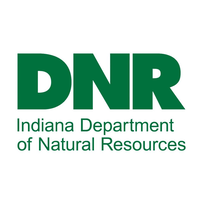Flood mitigation planning in Indiana and many other states results in the creation or update of a hard copy plan that often sits on a shelf. However, the flood mitigation strategies contained in the plans, as well as the GIS data used to support analysis for the plan, are too important to be stored in a silo (non-shared) repository. It is much better if the flood mitigation data and information was stored in a way that it could be shared, viewed, uploaded, and updated by appropriate members of the mitigation planning and emergency management teams across the state.
The Polis Center proposed creating a platform for getting information about flood hazard risks in Indiana into the hands of the people who “need to know and act upon.” It would also equip decision makers, officials and developers in Indiana with information in support of risk-informed choices to make their projects resilient today and into the future. It would provide a one-stop-shop for flood hazards, risk, and mitigation in Indiana and empower non-technical users to understand the impacts of floods in their locality and make their development projects more resilient.
The Polis Center partnered with the Indiana Dept. of Homeland Security (IDHS) Indiana Dept. of Natural Resources (IDNR), U.S. Army Corps of Engineers (USACE), and the Indiana Silver Jackets to implement the Indiana Flood Mitigation Planner (IFMP), a platform for getting information about flood hazard risks in Indiana into the hands of the people who “need to know and act upon.” The IFMP will equip decision makers, officials and developers in Indiana with information in support of risk-informed choices to make their projects resilient today and into the future.
Aimed at providing a one-stop-shop for flood hazards, risk, and mitigation in Indiana, the IFMP empowers non-technical users to understand the impacts of floods in their locality and make their development projects more resilient. IFMP accomplished this through (1) gathering data and services from federal, state and local open data sources including but are not limited to IndianaMap, Indiana Geological Survey Map, Hazus risk estimates created by the Polis Center, USACE geospatial platform, and FEMA Geoplatform, and (2) encompassing a set of visualization, tracking, document management and analytic tools to transform harvested data into standardized information and indicator products that are easily interpretable by non-technical users.
Under the umbrella of Indiana Silver Jackets, IFMP provided unprecedented opportunity for major players to collaborate on the best practices and innovative techniques to promote a flood resilience agenda in the State.
Posting and sharing of flood risk and mitigation related data on this portal allows local responders and state responders to have access to data in order to better plan their emergency response actions in a more holistic manner. Having this data catalogued and easily available to mitigation planning officials at the federal, state, and local level promotes public engagement, and can assist with transitioning their mitigation and risk management plans and planning efforts to be on more of a continual planning cycle instead of being more traditionally focused on updating the plan every so many years.
The IFMP geospatial data and services was developed using open source tools and technology compatible with existing document and GIS formats and standards.
To learn more about our GIS analysis services, contact Marianne Cardwell.






